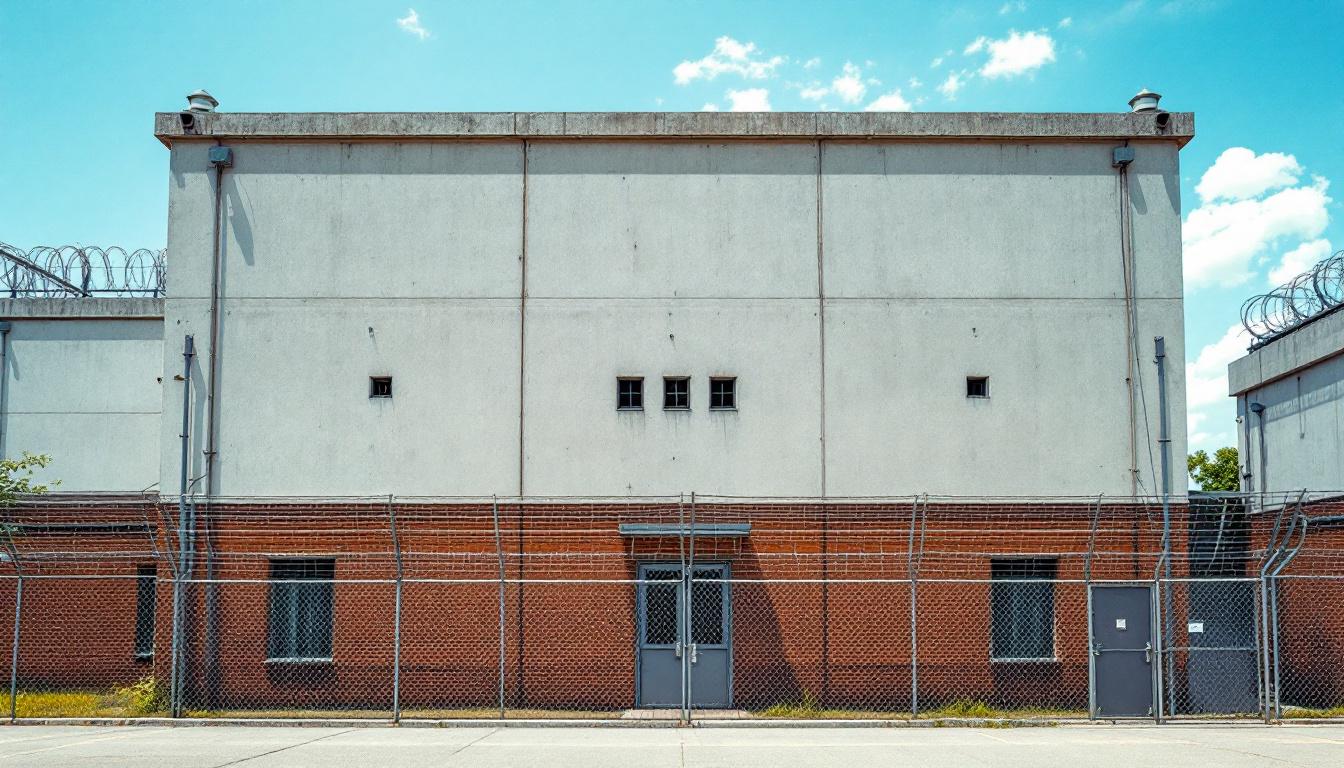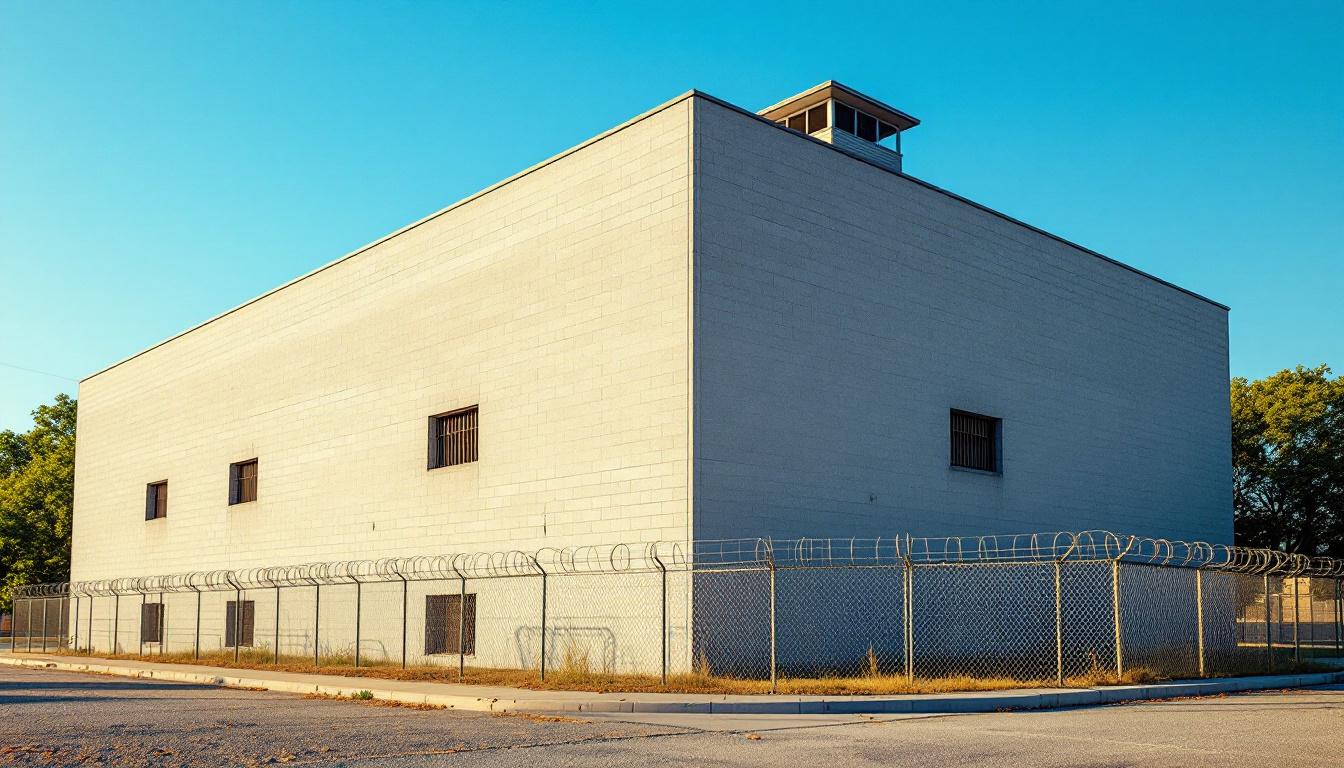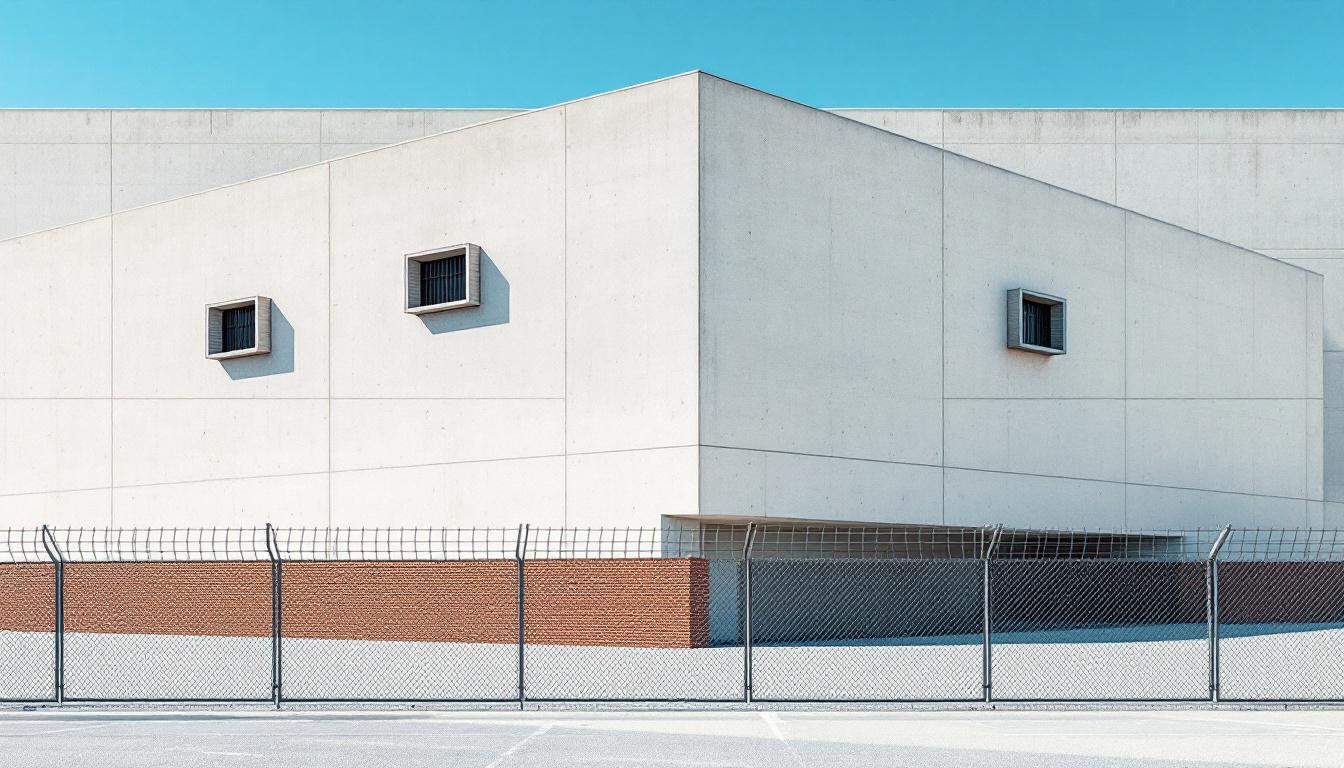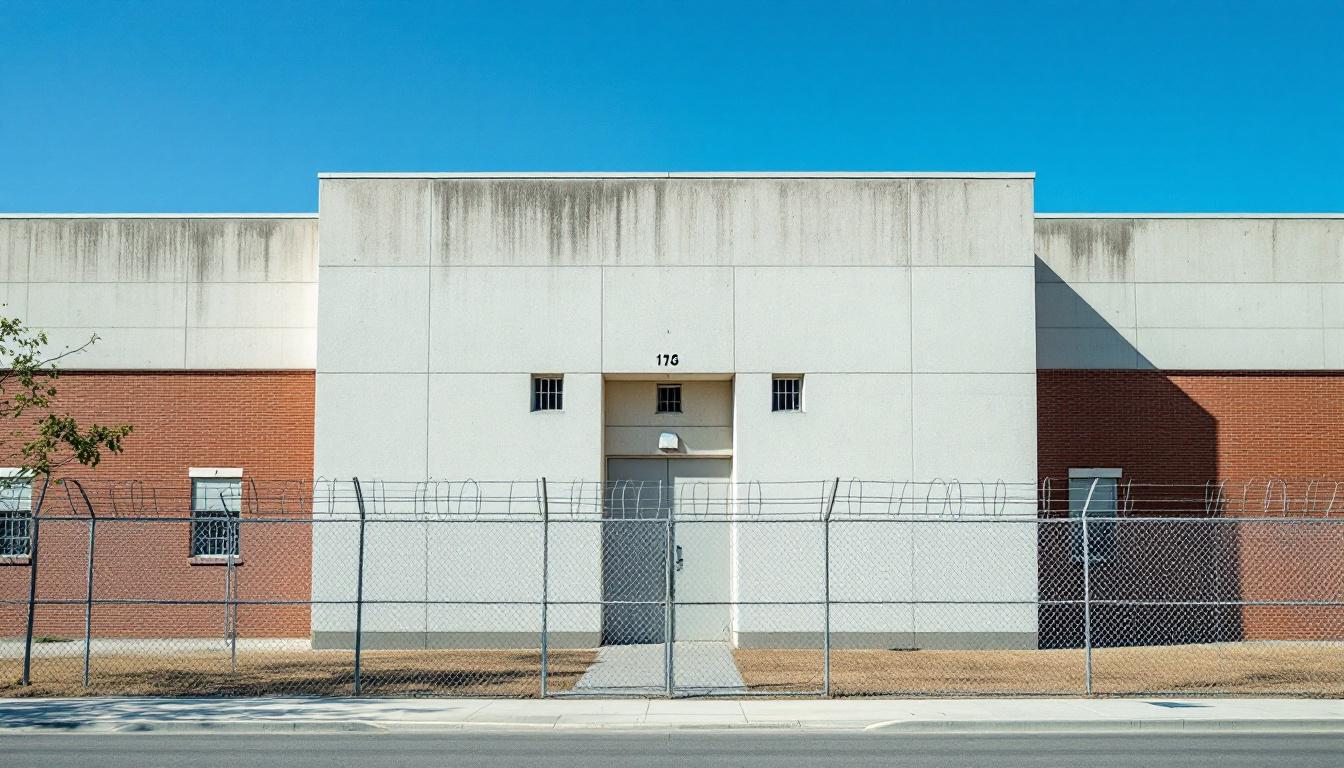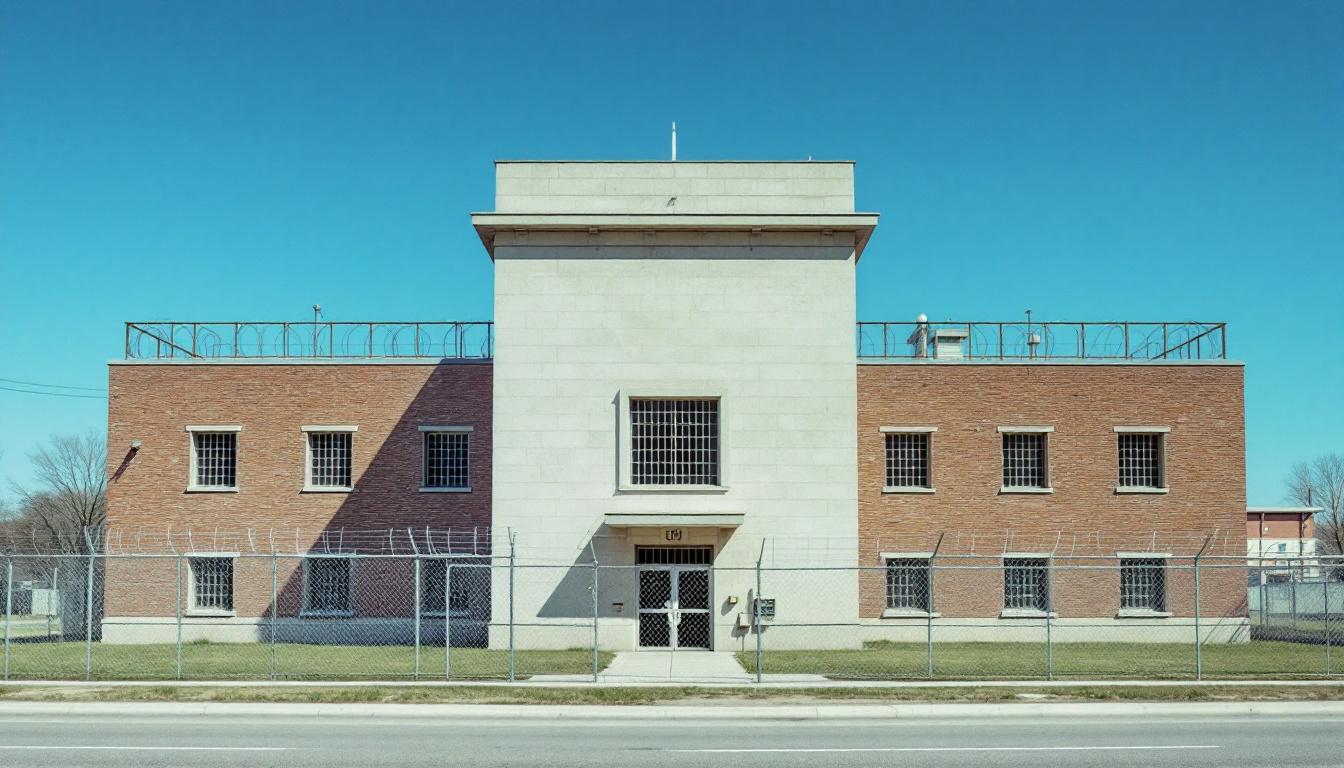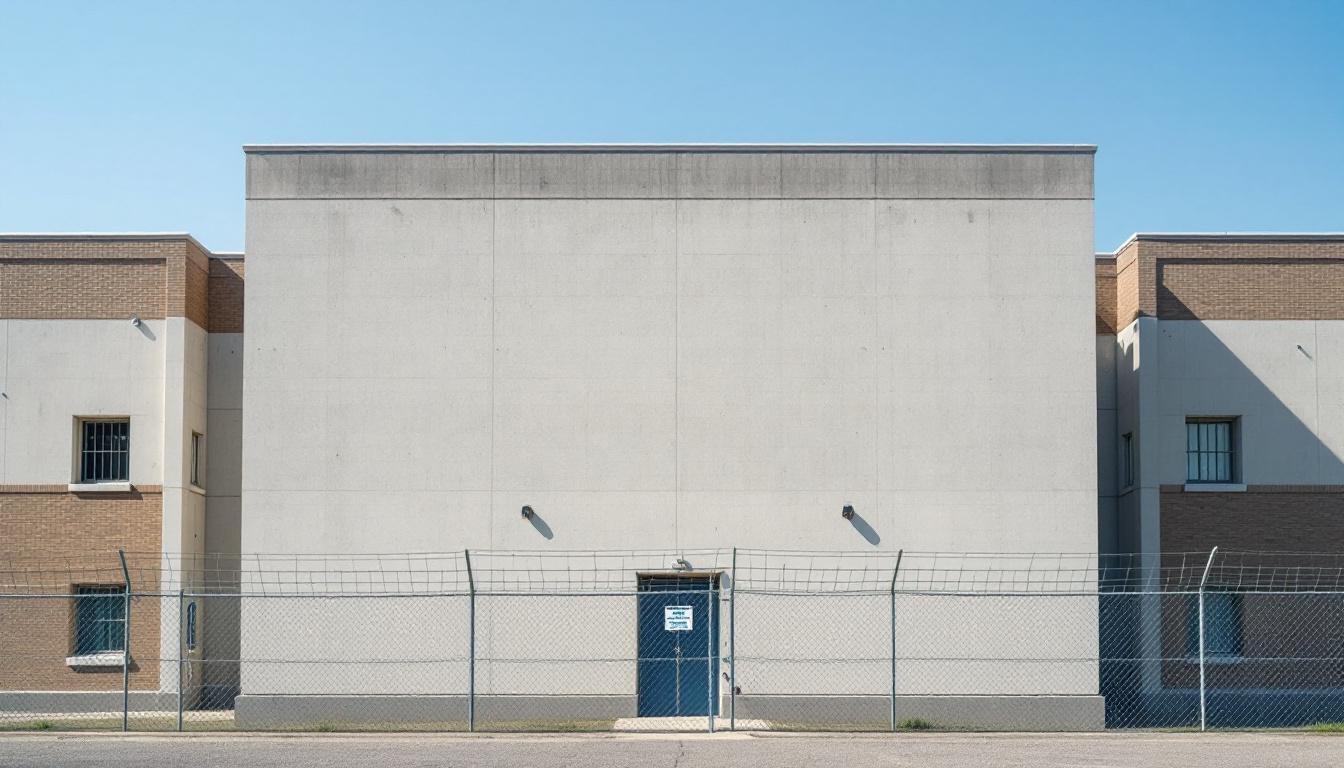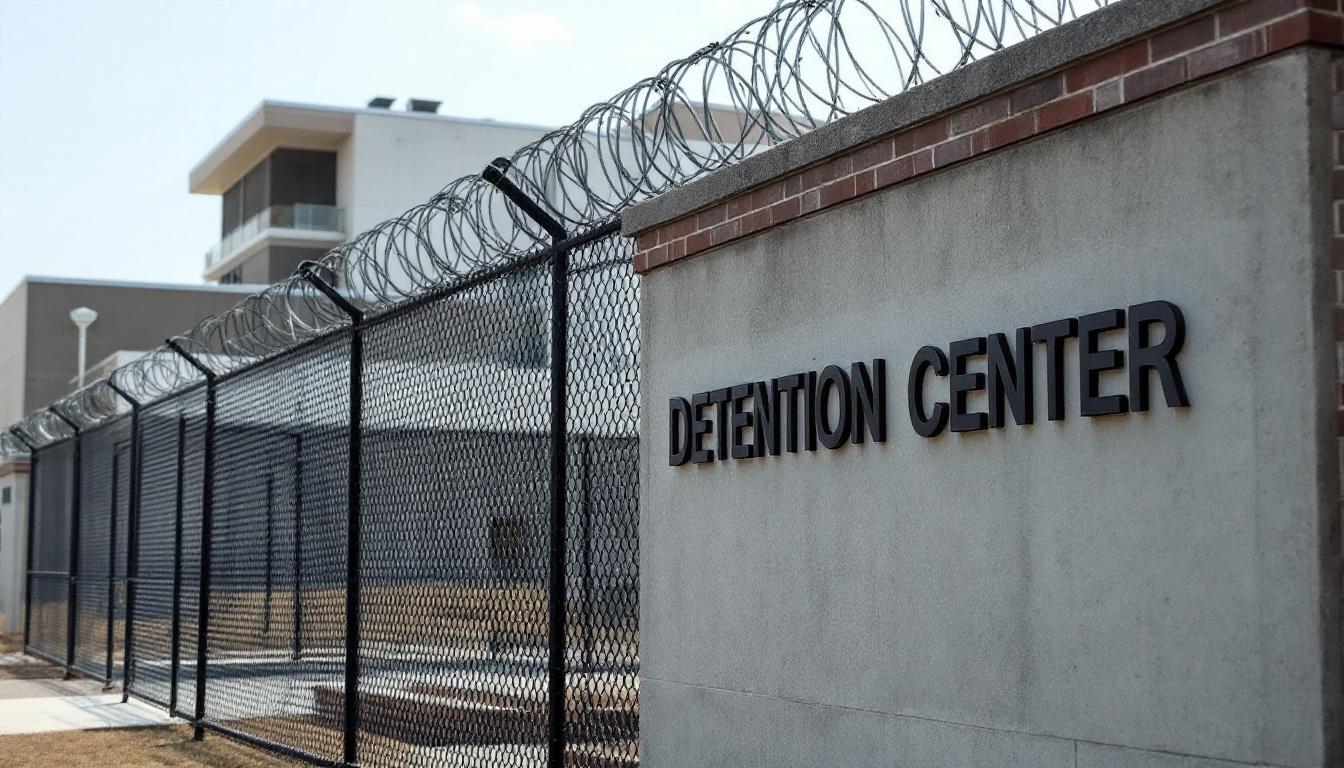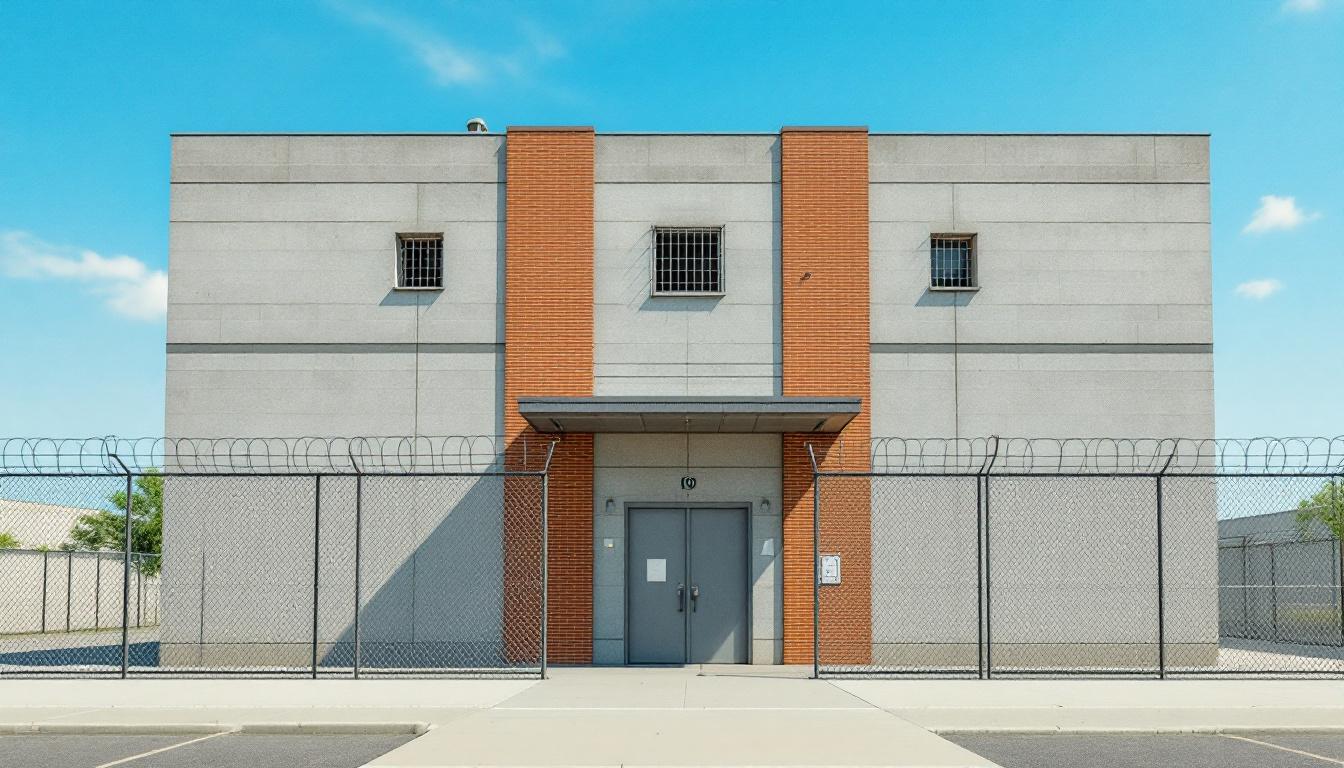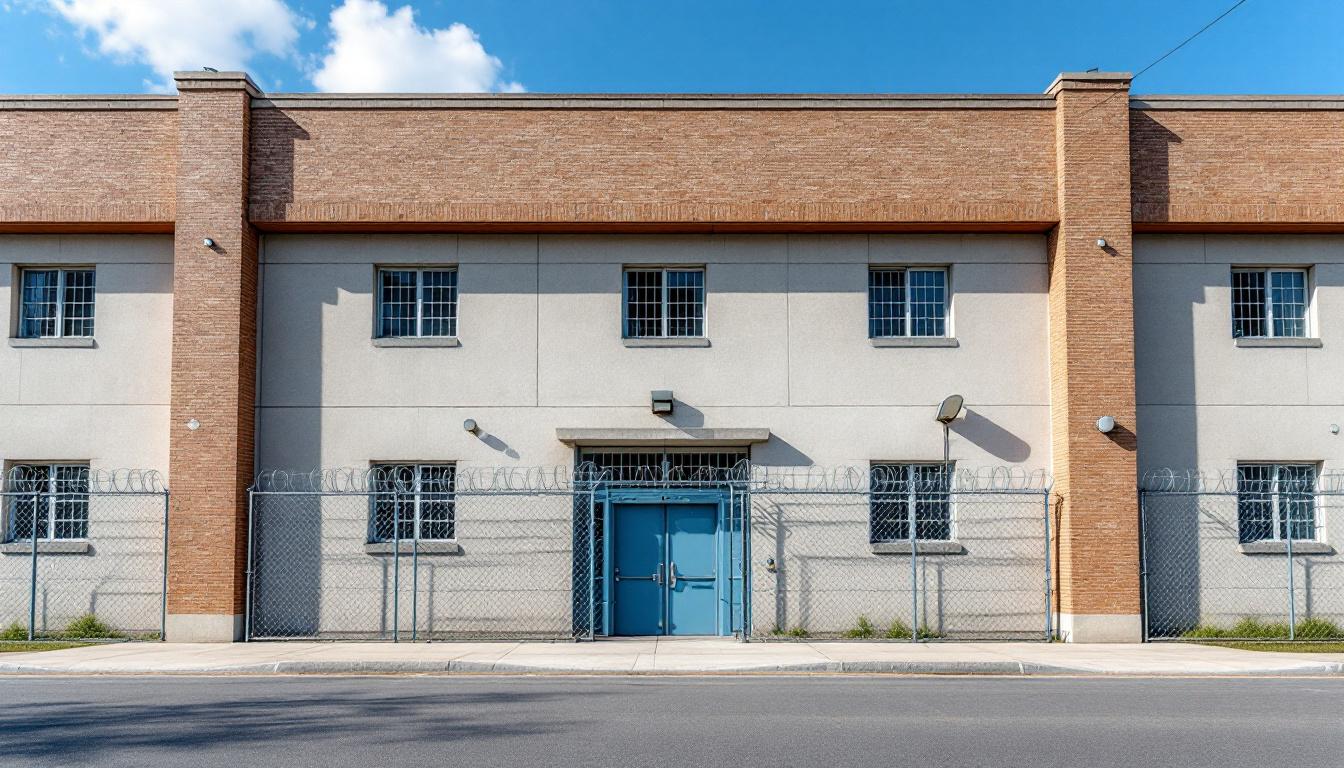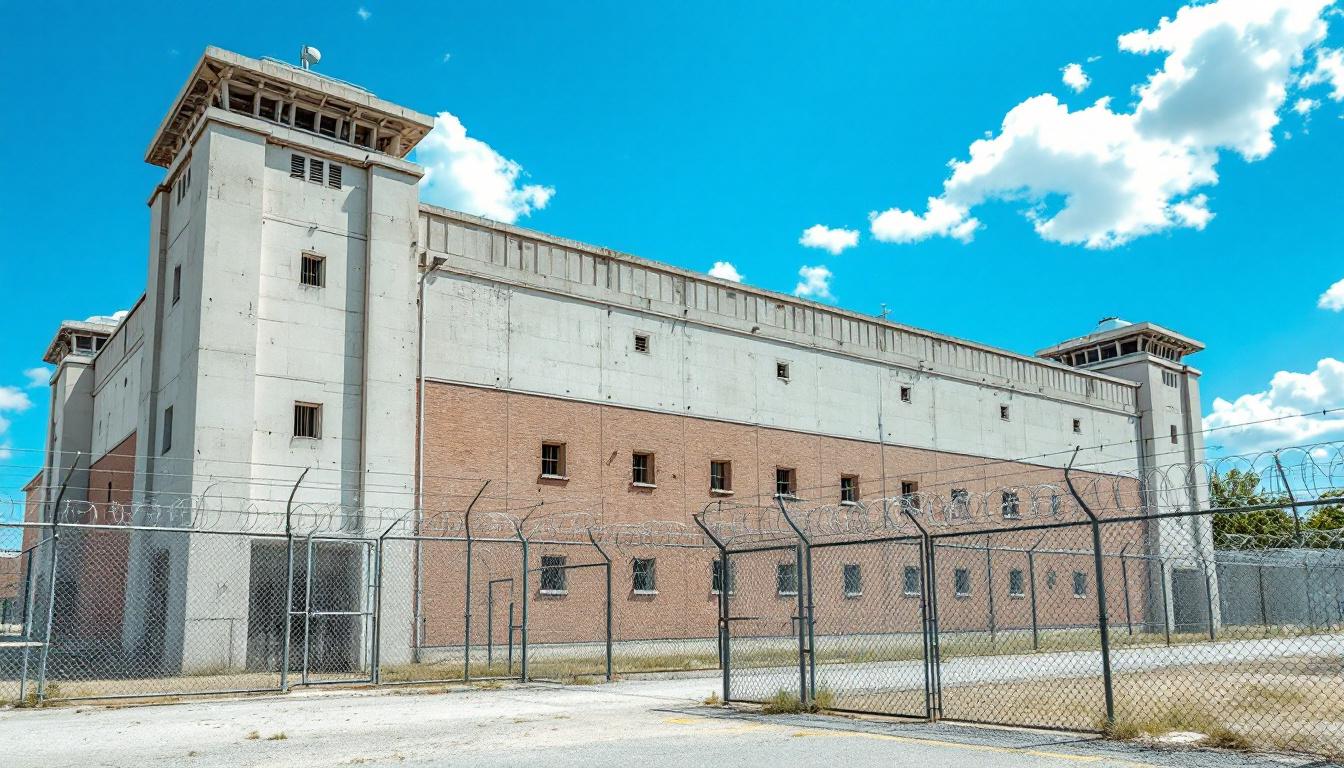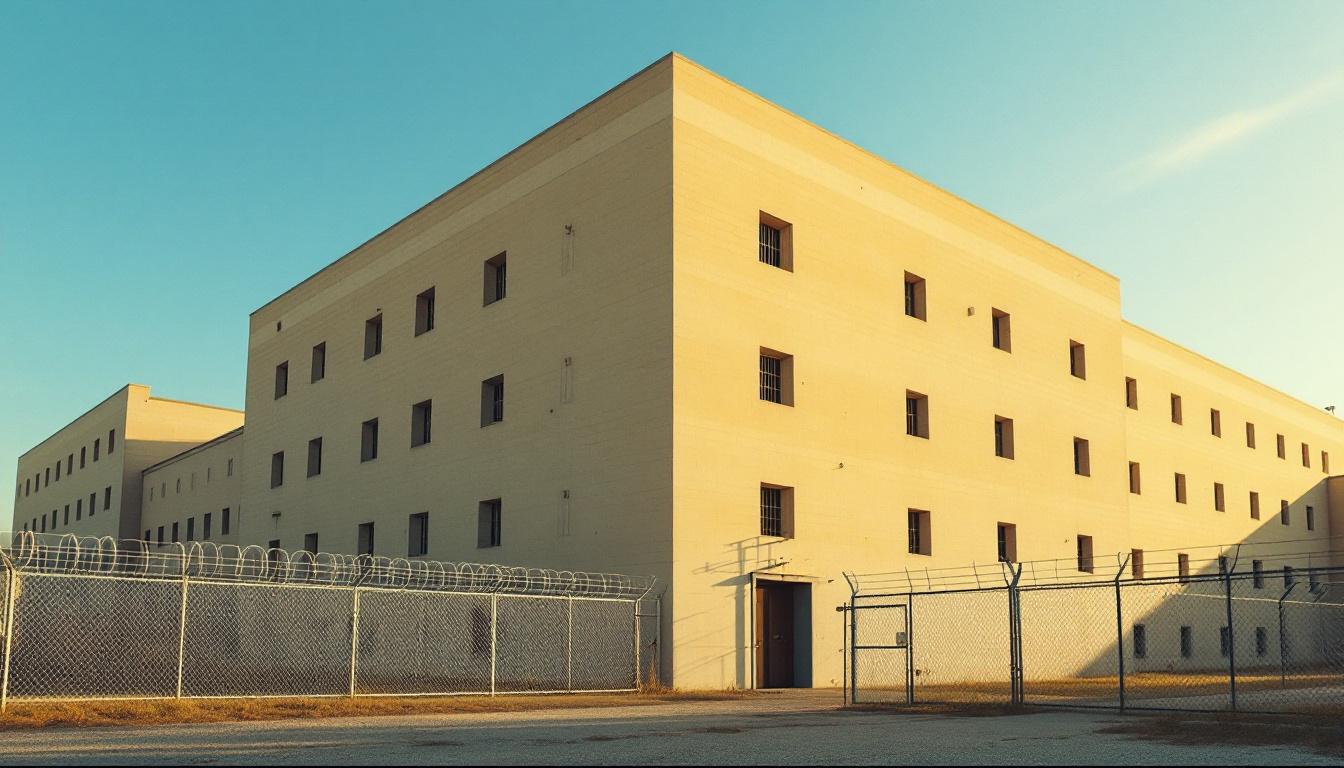
Quick Navigation
How to contact an inmate at Brunswick County Jail
This comprehensive guide will walk you through how to connect with an inmate at Brunswick County Jail. Follow the steps below to find an inmate and send letters and photos:
- Search for the inmate using our search tool below
- Create your account or log in to Penmate
- Write your message (up to 6,000 characters)
- Send instantly - inmates receive printed copies daily
Find an Inmate
Search for an inmate to start communicating today
Tip: You can search by first name, last name, or inmate ID number
To contact a person at Brunswick County Jail start by searching for the person on the official facility website. Perform a search by following these steps:
- Step 1: Enter their first name and last name into the search form and click "Search"
- Step 2: Locate their inmate record
- Step 3: Write down their Inmate ID and any housing information provided
Important! Be sure to enter the person's full name. Nicknames should not be used.
How to Send Messages to Inmates

You can use your phone or computer to send emails, letters, and photos to an inmate. Messages are sent electronically to inmate tablets or kiosks at the facility. If you would like to send a message, start by searching for an inmate at Brunswick County Jail.
Sending Photos and Postcards

A great way to send love and support to a loved one at Brunswick County Jail is to send photos and postcards. It only takes a few minutes to send photos from your phone and it makes a huge difference. You can also mail postcards with words of support and inspiration, or design your own postcard for special moments like birthdays and holidays.
Important! Be sure not to send any explicit photos or they may not be approved by the facility. You can also use a photo printing app like Penmate to make sure your photos are printed at the correct size (4x6 or 3x5) and are mailed according to the rules and regulations of Brunswick County Jail.
Frequently asked questions about Brunswick County Jail
-
How long does it take to deliver a message?
If you're sending an email message your letter is usually delivered within 24-48 hours. For messages sent via mail you should expect delivery within 3-7 days. All messages will need be approved by Brunswick County Jail.
-
How much does it cost to send a message to Brunswick County Jail?
You can send a message free using your phone or mail a message via USPS for the price of a $0.60 stamp and envelope. You can also purchase credits or e-stamps from services starting at $1.99.
-
What services can I use to contact an inmate at Brunswick County Jail?
Penmate
You can use Penmate to send letters and photos to an inmate from your phone. It's an easy way to stay in touch during your loved one's incarceration. Use the inmate locator to find an inmate's location and contact information, then you can send messages within a few minutes.
Securus messaging
Securus may be another option for communicating with an inmate at Brunswick County Jail. You can create a friends and family account and purchase credits to send messages. All messages will be reviewed and must be approved by the facility.
JPay
Some county jails and state prisons may support sending messages with JPay. You must register an account with the system, find your loved one, and purchase stamps to send messages. For some locations you can also attach photos.
Smart Jail Mail
You may also check if Smart Jail Mail is available at Brunswick County Jail. Smart Jail Mail is operated by Smart Communications and has contracted with some state and county jails. After purchasing credits, your messages and photos are sent to the facility, printed out, and then handed out to your loved one.
-
What is the mailing address of Brunswick County Jail?
Mailing address:
Brunswick County Jail
70 Stamp Act Dr NE
Bolivia, NC 28422
Phone: (910) 253-2760 -
What are the visiting hours at Brunswick County Jail?
Visiting hours at Brunswick County Jail vary by housing unit and security level. Generally, visits are scheduled on weekends and holidays, with some facilities offering weekday visits. Contact the facility directly at (910) 253-2760 or check their website for the current visiting schedule. Visits typically last 30-60 minutes and must be scheduled in advance.
-
What items are prohibited when sending mail to Brunswick County Jail?
Prohibited items typically include: cash, personal checks, stamps, stickers, glitter, glue, tape, staples, paperclips, polaroid photos, musical or blank greeting cards, hardcover books, magazines with staples, and any items containing metal or electronics. Only send letters on plain white paper with blue or black ink. Photos must be printed on regular photo paper (no Polaroids). Always check with Brunswick County Jail for their specific mail policies.
-
How do I send money to an inmate at Brunswick County Jail?
You can send money to an inmate at Brunswick County Jail through several methods: 1) Online using JPay, Access Corrections, or the facility's approved vendor, 2) Money orders mailed directly to the facility with the inmate's name and ID number, 3) Kiosks located in the facility lobby, or 4) Over the phone using a credit or debit card. Fees vary by method, typically ranging from $2.95 to $11.95 per transaction.
-
Can I schedule a video visit with an inmate at Brunswick County Jail?
Many facilities now offer video visitation as an alternative to in-person visits. At Brunswick County Jail, video visits may be available through services like Penmate, Securus Video Connect, GTL, or ICSolutions. Video visits typically cost $10-20 for 20-30 minutes and must be scheduled in advance. You'll need a computer or smartphone with a camera and reliable internet connection. Contact the facility for their specific video visitation policies and approved vendors.
-
What identification do I need to visit an inmate at Brunswick County Jail?
All visitors must present valid government-issued photo identification such as a driver's license, state ID, passport, or military ID. Minors must be accompanied by a parent or legal guardian who can provide the minor's birth certificate. Some facilities require visitors to be on the inmate's approved visitation list, which may require a background check. Contact Brunswick County Jail for specific ID requirements and visitor approval procedures.
-
How can I find out an inmate's release date?
To find an inmate's release date at Brunswick County Jail, you can: 1) Use the online inmate search tool if available, 2) Call the facility's records department, 3) Contact the inmate's case manager or counselor, or 4) Have the inmate provide this information during a call or visit. For privacy reasons, some facilities only release this information to immediate family members.
Facility Overview
Contact Information
Brunswick County Jail70 Stamp Act Dr NE
Bolivia, NC 28422
Phone: (910) 253-2760
Official Website
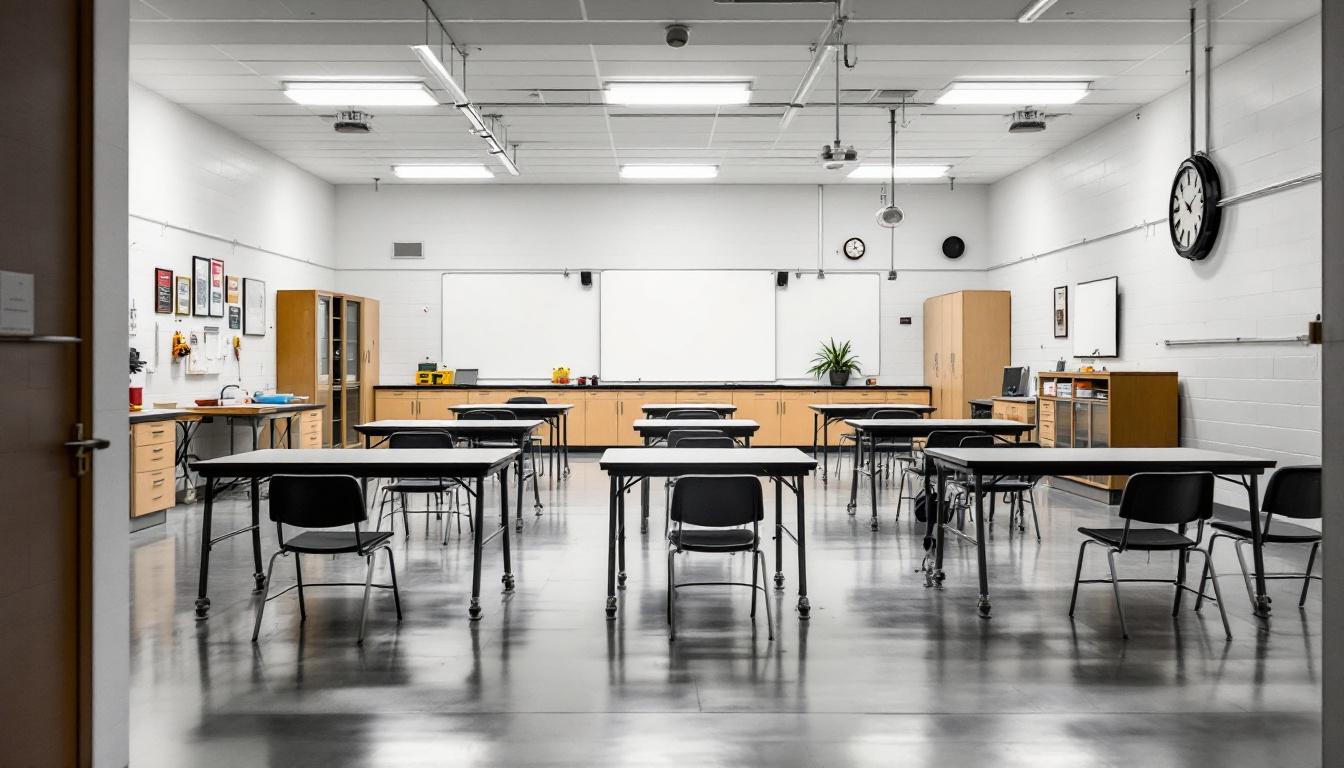
About Brunswick County Jail
Detention centers within North Carolina’s correctional framework serve as critical intake and holding facilities for individuals awaiting trial or serving shorter sentences, and the Brunswick County Detention Center in Bolivia exemplifies this essential function within the state’s southeastern coastal region. Operating as a county-level facility, this detention center typically processes individuals from throughout Brunswick County while maintaining connections to the broader NC correctional system through standardized protocols and inter-agency coordination.
The population services at this Bolivia-based facility generally encompass pre-trial detainees, individuals serving misdemeanor sentences, and those awaiting transfer to other correctional institutions within North Carolina’s network. As with most detention centers in the region, the facility may offer basic educational programming, substance abuse counseling, and medical services designed to address immediate needs while individuals navigate the legal process. The detention center’s role extends beyond mere housing, as it often serves as a crucial link between arrest and either release or placement within the state’s broader correctional system.
Located in Bolivia, the facility operates within Brunswick County’s commitment to maintaining secure, legally compliant detention services while supporting eventual community reintegration for those who return to the area. The center typically coordinates with local courts, law enforcement agencies, and social services to facilitate the judicial process and may provide family visitation opportunities that help maintain important community connections during periods of detention.
Programs & Services
Through a comprehensive framework of support services, the Brunswick County Detention Center recognizes that meaningful rehabilitation requires addressing the multifaceted challenges faced by incarcerated individuals. The facility’s approach to programming emphasizes building practical skills while fostering personal growth, creating pathways that extend far beyond the period of incarceration. This philosophy centers on equipping the population with tools necessary for successful community reintegration, acknowledging that sustainable change occurs through consistent support and skill development opportunities.
Educational services form the cornerstone of the facility’s academic offerings, typically providing basic literacy instruction, GED preparation, and continuing education opportunities that help participants advance their learning goals. Vocational training programs may supply hands-on experience in practical trades, often including specialized instruction in electrical work and painting and decorating. These skill-building initiatives are designed to enhance employability upon release, giving participants tangible qualifications that can translate into meaningful employment opportunities in their communities.
In addition to these foundational programs, therapeutic interventions address underlying issues that may have contributed to incarceration, with substance abuse programs offering structured support for those struggling with addiction. Employment readiness services typically focus on job search strategies, interview preparation, and workplace skills development, while mentoring programs connect participants with guidance and encouragement throughout their journey. This comprehensive support network recognizes that successful reintegration requires not dedicated practical skills but also emotional and psychological preparation for the challenges of rebuilding relationships with family and community members.
Daily Life & Visitation
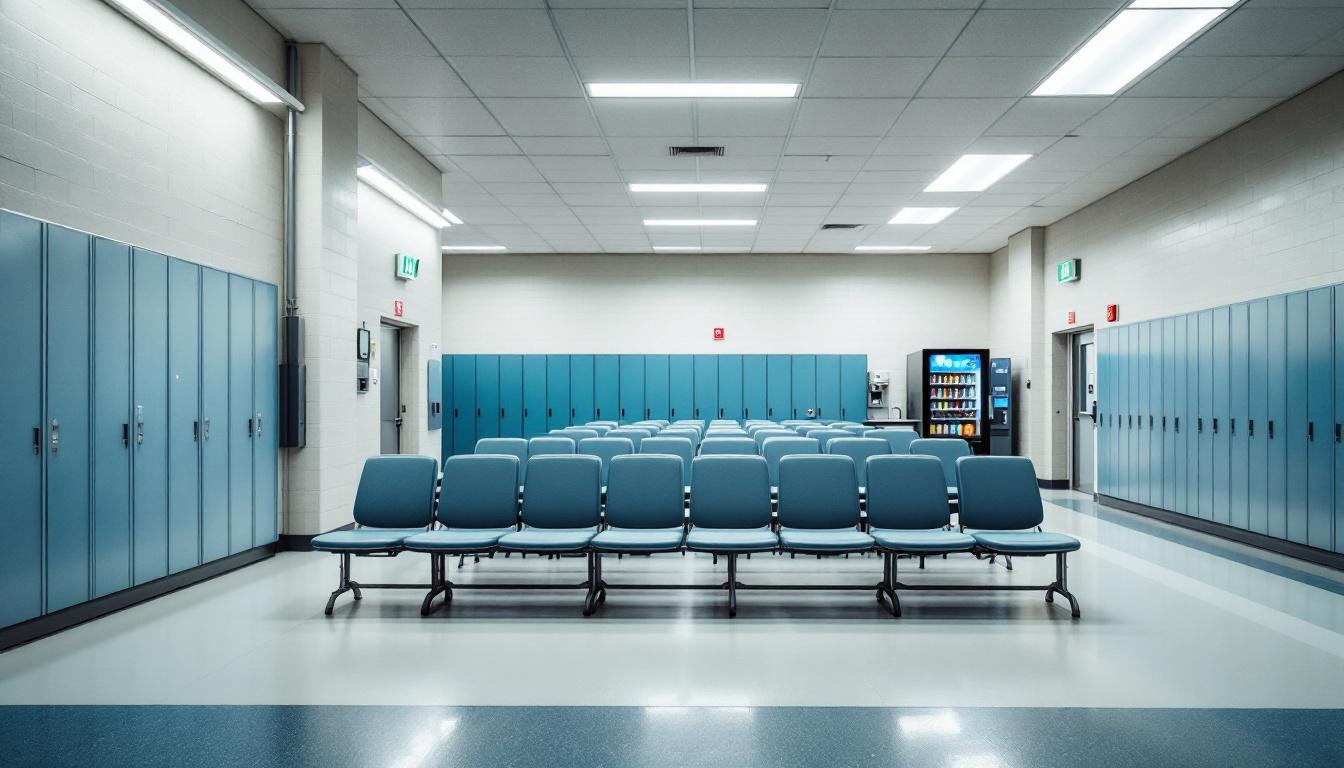
Structured organizational protocols at present actively govern every aspect of the population’s experience at Brunswick County Detention Center, with carefully coordinated schedules that supply predictability and order throughout each day. The facility typically operates on a regimented timeline that generally begins with early morning wake-up calls, followed by structured meal periods, programmed activities, and designated rest times that help maintain institutional stability. Housing assignments are usually managed through a classification system that considers factors such as security level, behavior, and individual needs, with the population distributed across various housing units designed to accommodate different custody requirements.
Living accommodations within the facility generally consist of dormitory-style housing or individual cells, depending on classification levels, where the population maintains personal belongings within established property limits and follows specific guidelines for room maintenance and cleanliness. In addition to this structured living environment, meals are typically served at designated times in common dining areas or delivered to housing units, with menus that usually meet basic nutritional requirements while accommodating certain dietary restrictions or medical needs. The commissary system often provides opportunities for the population to purchase approved personal items, snacks, and hygiene products using funds from their institutional accounts.
Despite this highly regulated environment, the facility may offer various recreational opportunities that supply physical activity and mental stimulation, including access to exercise areas, television viewing, and reading materials during designated periods. Visitation policies generally allow for scheduled contact with family members and approved visitors, while telephone access and written correspondence typically provide additional means of maintaining connections with loved ones outside the facility. Work assignments and facility maintenance duties are often available to eligible members of the population, creating structured daily responsibilities that contribute to institutional operations while providing purposeful activity and potential skill development opportunities.
Ready to Connect?
Start communicating with your loved one today
Search for an Inmate
